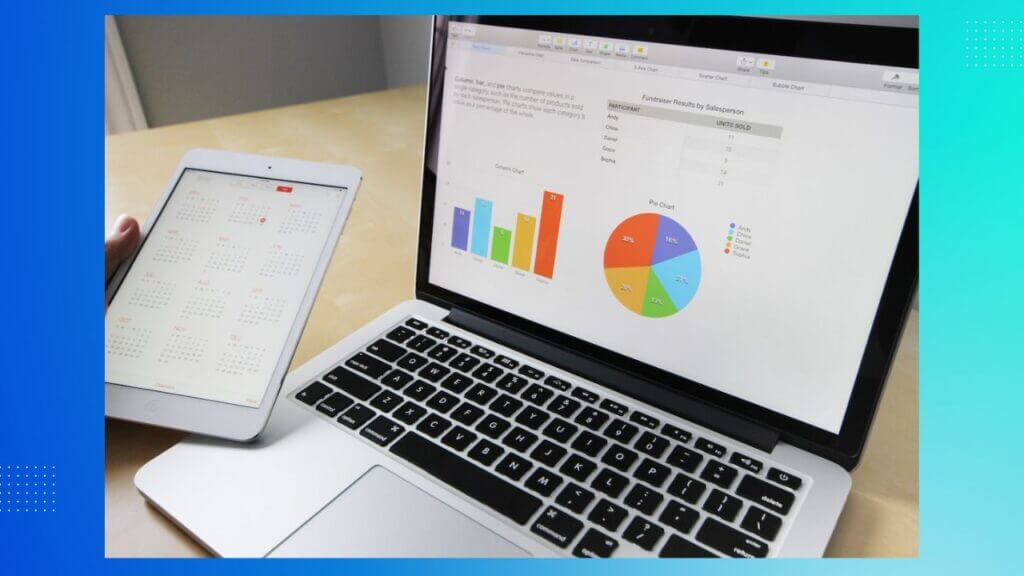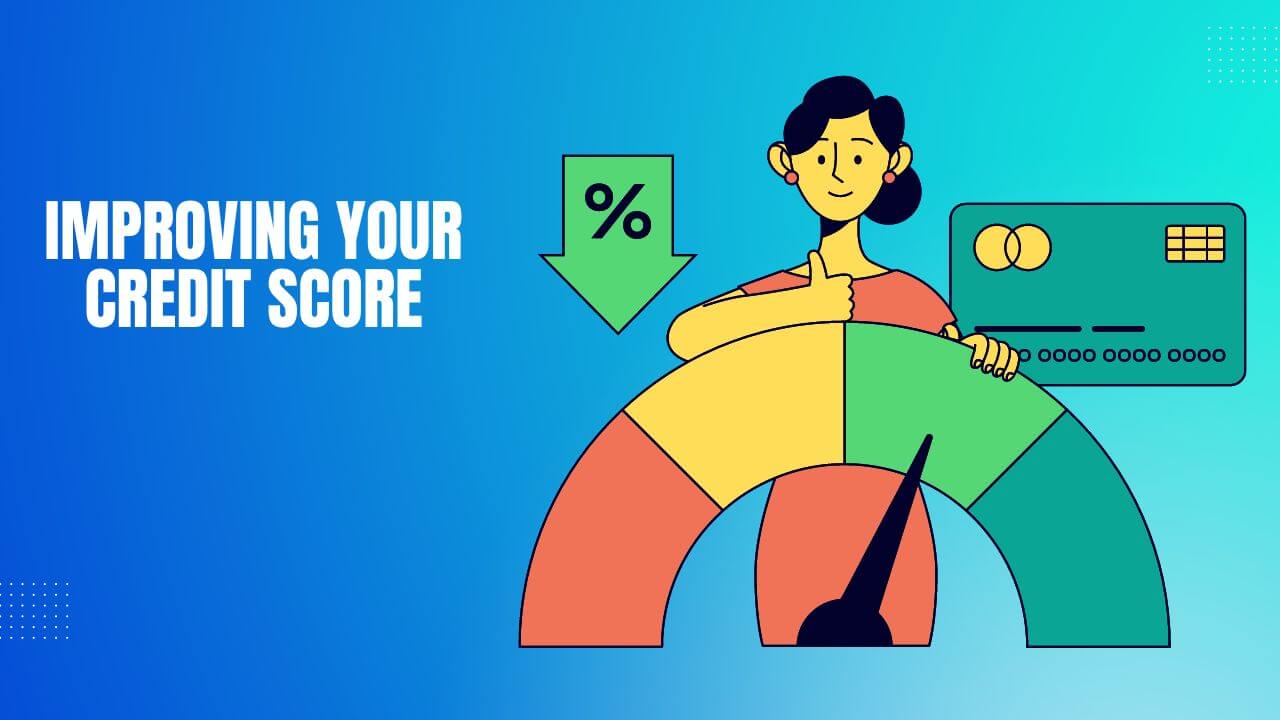Welcome to our blog post on understanding and improving your credit score as a millennial!
Did you know that according to a recent study, only 33% of millennials have a credit score above 700?
With increasing financial responsibilities such as student loans, credit card debt, and mortgage payments, millennials need to understand the importance of building and maintaining a strong credit score.
A credit score is not just a number, but a powerful tool that can impact your ability to obtain loans, rent an apartment, or even secure a job. A recent survey found that 72% of employers conduct credit checks on job candidates.
So, if you’re a millennial looking to take control of your financial future, improving your credit score should be a top priority.
In this post, we’ll delve into the nitty-gritty of credit scores, exploring factors that influence your score, common misconceptions, and practical tips for improving them.
We’ll also highlight the impact of credit utilization on your score and provide strategies for managing your credit card debt.
With the right knowledge and tools, you can boost your credit score, open up new credit opportunities, and ultimately achieve your financial goals.
So, whether you’re a recent college grad or a seasoned professional, read on to learn everything you need to know about improving your credit score as a millennial.
1. Understanding Credit Scores
Your credit score is one of the most important indicators of your financial health. It is a numerical representation of your creditworthiness, and lenders use it to determine your risk level when it comes to borrowing money.
A good credit score can open doors to better credit card offers, lower interest rates on loans, and even help you land a job.
In this section, we’ll explore what factors affect your credit score, how credit scores are calculated, and debunk some common credit score myths.
1.1 Factors that Affect Your Credit Score
Several factors can influence your credit score. Here are some of the most significant ones:
Payment history: Your payment history is the most crucial factor in determining your credit score. It accounts for 35% of your score, so it’s crucial to make your payments on time and in full.
Credit utilization: Your credit utilization is the amount of credit you’re using compared to the total amount available to you. It accounts for 30% of your credit score, so it’s crucial to keep your credit card balances low.
Length of credit history: The length of your credit history accounts for 15% of your credit score. Lenders like to see a long and stable credit history, so it’s essential to start building credit early.
Types of credit: The types of credit you have (such as credit cards, auto loans, and mortgages) make up 10% of your credit score. Having a mix of different types of credit can help improve your score.
New credit: Applying for new credit accounts for the remaining 10% of your credit score. Applying for too much credit too quickly can hurt your score.

1.2 How Credit Scores are Calculated
Credit scores are calculated using a complex algorithm that takes into account the factors listed above. The most common credit score is the FICO score, which ranges from 300 to 850. Here’s how FICO scores are typically broken down:
- Exceptional: 800 and above
- Very Good: 740-799
- Good: 670-739
- Fair: 580-669
- Poor: 579 and below
1.3 Common Credit Score Myths Debunked
There are many misconceptions when it comes to credit scores. Here are some common credit score myths debunked:
Myth 1: Checking your credit score will hurt your credit
This is false. When you check your credit score yourself, it’s considered a “soft inquiry” and does not affect your score.
Myth 2: Closing credit cards will improve your credit score
This is also false. Closing a credit card can hurt your score because it reduces the amount of available credit you have.
Myth 3: A high income equals a high credit score
While having a high income can help you get approved for credit, it doesn’t necessarily mean you’ll have a high credit score. Your credit score is based on your credit history and other factors, not your income.
2. Why a Good Credit Score Matters for Millennials
As a millennial, building and maintaining a good credit score may not seem like a priority, but did you know that having a good credit score is crucial for your financial future?
2.1 Some eye-opening statistics
According to a 2020 survey by Credit Karma, 46% of millennials reported having a credit score below 680, which is considered fair or poor.
A good credit score can save you thousands of dollars in interest payments. For example, if you have a 30-year mortgage for $200,000 with an interest rate of 4.5% and a credit score of 760, you could save over $100,000 in interest payments compared to someone with a credit score of 620 and an interest rate of 5.5%.
Having a good credit score can make it easier for you to rent an apartment. According to a survey by RentCafe, the average credit score for renters was 638, and renters with a credit score of 720 or higher were more likely to get approved for an apartment.
Your credit score can also impact your ability to get hired. According to a 2018 survey by the National Association of Professional Background Screeners, 47% of employers reported using credit checks during the hiring process.

2.2 Reasons why a good credit score matters for millennials
- A good credit score can help you secure lower interest rates. This means you’ll be able to save money on interest payments and pay off your debts faster.
- A good credit score can help you get approved for loans and credit cards. Lenders will check your credit score to determine if you are a risky borrower. If you have a good credit score, you are more likely to get approved for a loan or credit card.
- A good credit score can impact your ability to rent an apartment. Landlords often check credit scores as part of the tenant screening process. A low credit score can make it difficult to get approved for an apartment or rental property.
- A good credit score can impact your ability to get hired. Some employers may check credit scores as part of the hiring process, particularly for jobs in finance or positions that involve handling money.
2.3 Debunking common credit score myths
Myth: Closing a credit card will improve your credit score.
Truth: Closing a credit card can hurt your credit score because it reduces your available credit and increases your credit utilization ratio.
Myth: Checking your credit score will hurt your credit score.
Truth: Checking your credit score is considered a “soft inquiry” and does not impact your credit score.
Myth: Paying off a debt will immediately improve your credit score.
Truth: It can take several months for your credit score to improve after paying off debt.
In conclusion, a good credit score is crucial for millennials. It can impact your financial future by helping you secure lower interest rates, get approved for loans and credit cards, rent an apartment, and even get hired.
By understanding the importance of a good credit score and debunking common myths, millennials can take control of their financial future and build a solid foundation for long-term success.
3. Improving Your Credit Score
Your credit score can impact your financial future in significant ways. According to a survey by the National Foundation for Credit Counseling, 70% of millennials are worried about their credit scores.
3.1 Improve your credit score
Pay your bills on time: Late payments can significantly hurt your credit score. Payment history makes up 35% of your FICO credit score.
Reduce credit utilization: The amount of credit you’re using compared to your total credit limit is your credit utilization ratio. A high credit utilization ratio can negatively impact your score. According to FICO, people with excellent credit scores have a credit utilization ratio of 7%.
Dispute errors on your credit report: Your credit report may contain errors that can hurt your credit score. In a study by the Federal Trade Commission, one in four consumers found errors on their credit reports that could affect their scores.
If you don’t have any credit history, building credit can be challenging. Here are some strategies for building credit:
Apply for a secured credit card: A secured credit card requires a security deposit, which acts as collateral in case you default on your payments. Using a secured credit card responsibly can help you build credit. In a survey by CreditCards.com, 63% of millennials said they had a secured credit card at some point.
Become an authorized user on someone else’s credit card: Being added as an authorized user on someone else’s credit card can help you build credit. However, make sure that the cardholder has good credit and uses the card responsibly.

3.2 Managing credit responsibly
Keep your credit card balances low: According to Experian, people with excellent credit scores have an average credit card balance of $1,190, which is below the national average of $5,315.
Don’t apply for too much credit at once: Applying for multiple credit cards or loans at once can negatively impact your credit score. According to FICO, new credit accounts for 10% of your credit score.
Monitor your credit report regularly: In a survey by Bankrate, 41% of millennials said they had never checked their credit report. Review your credit report regularly to ensure that all the information is accurate.
In conclusion, improving your credit score is essential for your financial future.
By taking steps to improve your credit score, building credit if you don’t have any credit history, and managing credit responsibly, you can build a solid foundation for your financial success as a millennial.
4. Tools and Resources for Monitoring and Improving Your Credit Score
A good credit score is essential for financial stability, but according to a recent survey by CreditCards.com, only 17% of millennials know their credit score.
Fortunately, there are several tools and resources available to help millennials monitor and improve their credit scores. Here’s a closer look at some of the best:
4.1 Credit monitoring services
In a survey by Javelin Strategy & Research, 63% of millennials said they were interested in using a credit monitoring service.
These services provide regular updates on your credit score and credit report, giving you insight into how lenders view your creditworthiness.
Some popular credit monitoring services include Credit Karma, which has over 110 million users, and MyFICO, which is used by 90% of top lenders.

4.2 Free resources for checking your credit score and credit report
Despite the availability of free resources, only 24% of millennials have checked their credit score in the past year, according to a survey by Bankrate.
AnnualCreditReport.com allows you to check your credit report for free once a year from each of the three major credit bureaus.
Additionally, some credit card companies offer free credit score monitoring as a perk to their customers.
4.3 Apps and tools
The same Javelin survey found that 71% of millennials are interested in using a mobile app to manage their finances. Here are a few apps and tools that can help improve your credit score:
4.3.1 Credit Sesame
This app provides free credit monitoring and credit score tracking. It also offers personalized advice on how to improve your score.
According to their website, users who follow Credit Sesame’s recommendations can see an average increase of 60 points in their credit score within four months.
4.3.2 Mint
Mint is a budgeting app that also provides free credit score monitoring. It also offers suggestions for credit cards and loans that may be a good fit for you.
In a survey by MagnifyMoney, Mint was rated as the top personal finance app by millennials.
4.3.3 Experian Boost
According to Experian, using Experian Boost can increase your FICO Score 8 by an average of 13 points.
This tool allows you to add positive payment history from utility and phone bills to your credit report, potentially boosting your score.
In conclusion, millennials have several options for monitoring and improving their credit score.
By taking advantage of these services and tools, millennials can build a strong credit history and improve their financial stability.
5. Common Credit Score Mistakes to Avoid
As a millennial, it’s important to be aware of the common credit score mistakes that can negatively impact your financial future. Here are some facts and figures to consider:
5.1 Applying for too much credit at once
According to FICO, having multiple hard inquiries on your credit report within a short period can lower your score by up to 10 points each.
Additionally, a study by Credit Karma found that people who applied for more than four credit accounts in a year had, on average, a 17-point lower credit score than those who applied for one or two accounts.

5.2 Closing credit accounts
Closing a credit account can lower your score in a few ways. First, it can decrease your available credit, which can increase your credit utilization ratio and lower your score.
According to Experian, your credit utilization ratio should be below 30% to maintain a good score.
Second, closing your oldest credit account can shorten the length of your credit history, which is another factor that impacts your score. The length of your credit history makes up 15% of your FICO score.
5.3 Ignoring your credit report
A study by the Federal Trade Commission found that one in five people had errors on their credit report that could impact their score. Ignoring your credit report can lead to errors going unnoticed, which can negatively impact your score.
Reviewing your credit report at least once a year can help you catch errors and dispute them.
To avoid these mistakes, it’s important to be mindful of your credit usage and regularly review your credit report.
By taking control of your credit score, you can improve your financial future and reach your financial goals.
Bottom Line…
As a millennial, taking control of your credit score can be a game-changer for your financial future. It’s essential to understand the factors that affect your credit score, how it’s calculated, and why it matters.
In this article, we’ve explored everything you need to know about credit scores, from debunking common myths to highlighting the importance of maintaining a good score.
We’ve also provided practical steps and tools to help you improve your credit score, avoid common mistakes, and achieve your financial goals.
Remember, having a good credit score is a powerful tool that can help you access better interest rates, secure loans, and ultimately build wealth.
By putting in the effort to understand and improve your credit score now, you’ll be setting yourself up for long-term financial success.

3 thoughts on “Understanding And Improving Your Credit Score As A millennial”